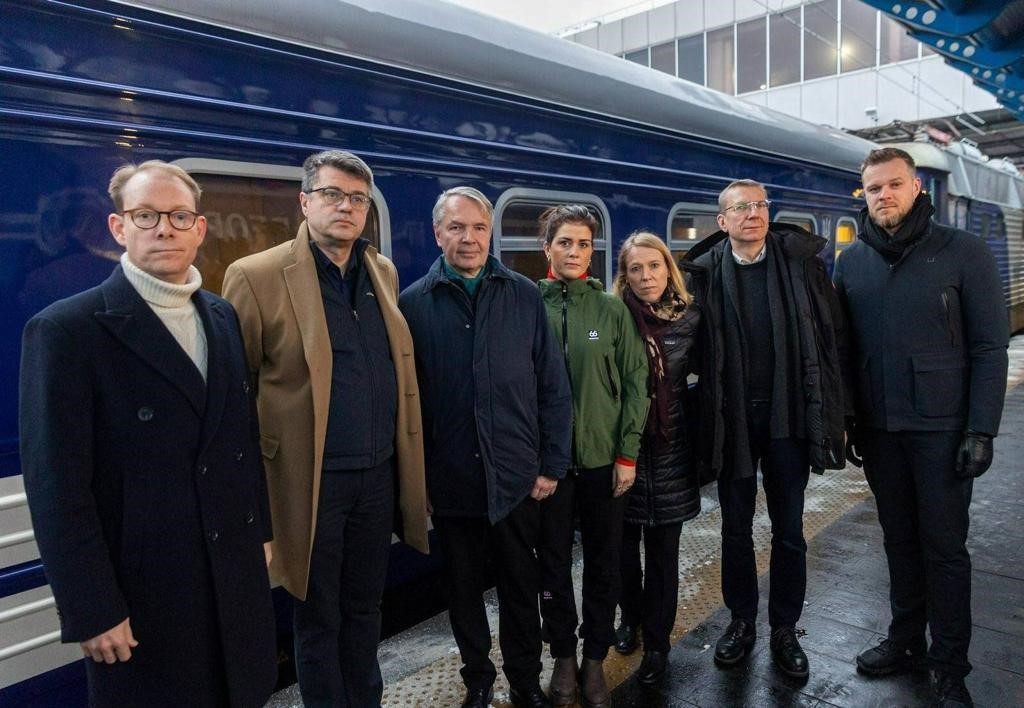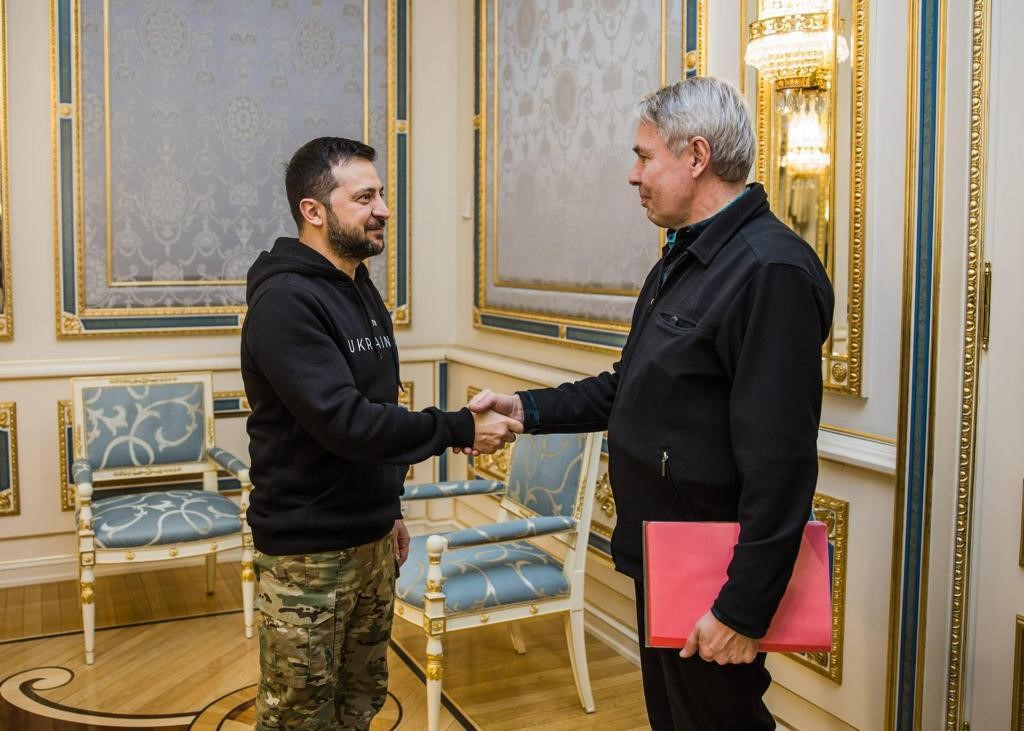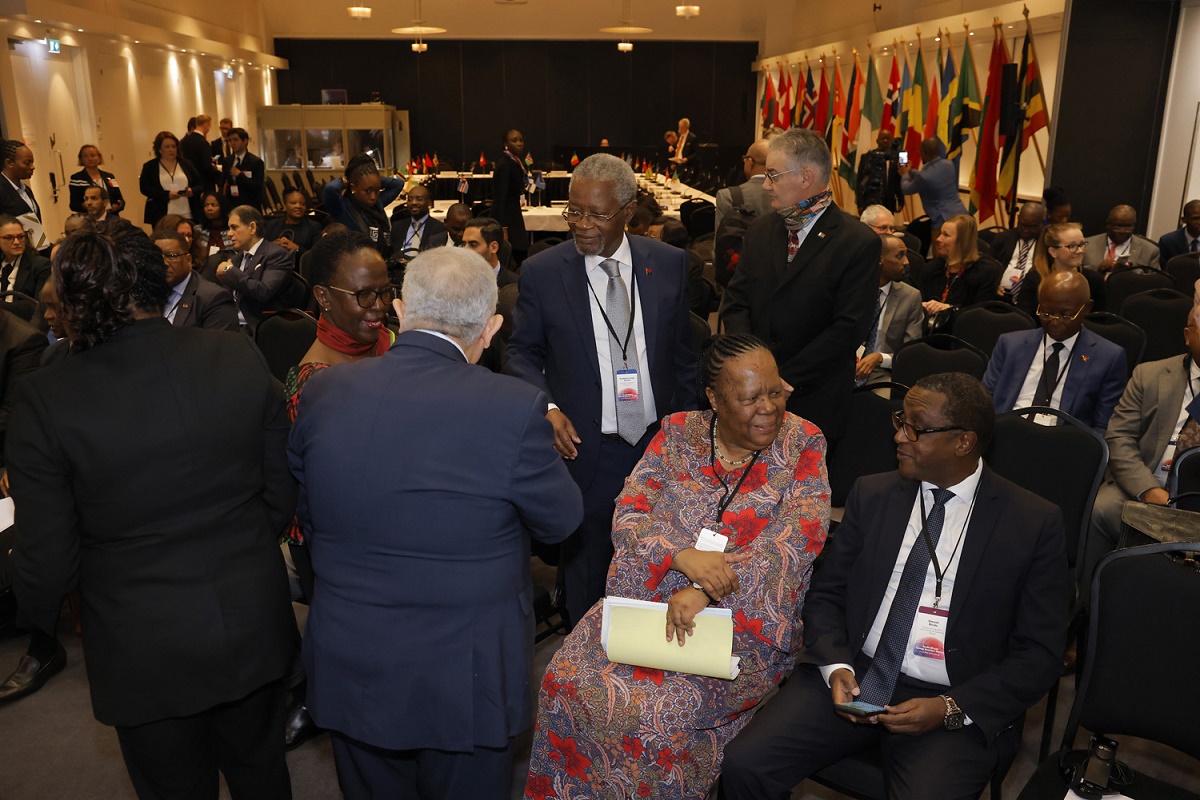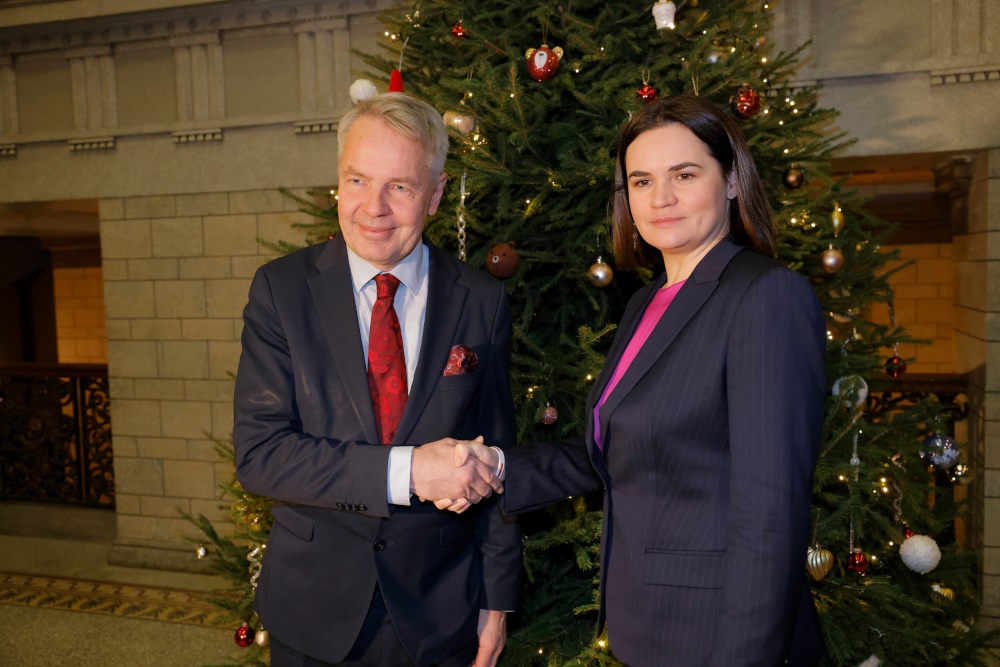Foreign Minister Haavisto: 2022 – a year of war and solidarity
“Even though this year will go down in the history books for Russia’s invasion of Ukraine, we have still been fortunate enough to record some favourable developments,” writes Pekka Haavisto, Minister for Foreign Affairs, in relation to the 2022 year in foreign policy.
Some days gain special status in history. One such day was the attack on the Twin Towers in New York on 11 September 2001. We must sadly record 24 February as another such date, when our Russian neighbour launched its invasion of Ukraine.
While this was a blow against a European security architecture, it also initiated an unprecedented wave of solidarity to assist Ukraine.

Russia was seeking to march into Kyiv, and to oust the democratically elected president and the government of a nation of 40 million people. Ukraine held its ground in the face of this major attack. Russia didn’t reach its objective.
Ukraine will continue its fight. The European Peace Facility has been a key channel for sending defence materiel to Ukraine. Finland has already dispatched eleven defence materiel packages in support of Ukraine at the time of writing.
Assistance for Ukraine has come not only from the central government, but also from local authorities, civil society organisations and private citizens in Finland. We have welcomed displaced persons while also providing humanitarian assistance, defence materiel and other material support to Ukraine.

Our security environment changed overnight
We responded rapidly to the new security situation. Finland has been stressing our option to join NATO since 2004, noting that we would also be prepared to review NATO membership in the event of any major changes in our security environment.
This became relevant in spring 2022, due to a shift in the European security architecture caused by Russia. Could you imagine a greater change in our security environment than a major assault by a neighbouring power in our immediate neighbourhood?
It is important that our foreign and security policy has enjoyed a very broad national consensus. The change in public opinion and the unanimity of Parliament have played a key role in this.
Here at the Ministry for Foreign Affairs, Finland’s NATO membership process has required extensive preparation of national decisions, unflagging use of diplomatic contacts, preparation of ratifications, and work in the sphere of public relations.

Only two ratifications are missing. The rapid ratification process and the favourable progress of our country image this year testify to the effectiveness of this work. We are already engaged in extensive preparatory work throughout the national administration in anticipation of our membership in NATO, and we participate as an invitee at NATO meetings.
EU in the front line, UN as a guarantor of global food security
The EU has demonstrated its ability to act in a unified, effective and decisive manner as Russia’s invasion of Ukraine has continued. The sanctions imposed on Russia and political, economic and military support for Ukraine have been substantial. New sanctions and support packages are already under preparation.
Promoting a strong EU is in the interests of Finland also from the security policy perspective. The EU is expected to show leadership in the current circumstances, coupled with the ability to react to both internal and external challenges, whether these concern energy, the economy or reinforcement of its global role.

Russia, a permanent member of the UN Security Council, is blatantly violating the principles of the UN Charter and the international law. The UN has nevertheless demonstrated its ability to act. With Russia applying its veto to block the work of the Security Council, the UN General Assembly has condemned its actions by a clear majority in numerous resolutions.

The UN has also played a key role in promoting the Black Sea Grain Initiative and shipments of grain and fertilizers. The International Atomic Energy Agency (IAEA) has done valuable work in ensuring nuclear safety, and the UN has also worked in the background with respect to exchanging prisoners of war.
Holding Russia accountable is crucial
Issues of war-related liability have also appeared on the agenda of the UN. Russia has committed systematic and serious war crimes in Ukraine, and it should be held accountable for them. The UN has also discussed Russia’s obligation to compensate for its military actions, and its liability related to the crime of aggression. A special tribunal may also be established.
The EU has imposed nine packages of sanctions on Russia. Sanctions are a powerful legal tool. At the request of the Ministry for Foreign Affairs, the National Enforcement Authority has frozen assets of sanctioned Russian entities to the value of some EUR 190 million. A total of approximately EUR 14 billion in assets frozen in various EU Member States have been reported to the EU information system.
Finland has continued cooperation with Russia in fields such as border operations. Our bilateral relations have substantially declined in other respects. The circumstances have underlined the importance, for example, of reducing dependencies on Russia in the fields of energy and the economy. Finnish companies have departed from Russia, with restrictions imposed on entry into Finland for the purpose of tourism and transit travel.
Restrictions on entry into Finland have reduced the need for visa processing staff, and we engaged in cooperation negotiations at the Service Centre for Entry Permits in Kouvola that fortunately did not result in any dismissals.
Tensions between superpowers have grown
The NATO membership process in particular has elevated the relationship between Finland and the United States to a new level. Contacts between the EU and the United States have also increased considerably due to the Russian invasion of Ukraine.
China continues to increase its role in global affairs. The relationship of the EU and Finland with China has become morecomplex due to China’s internal development and its close partnership with Russia. Issues of human rights have also been in the center of China debate. The Ministry for Foreign Affairs is leading an ongoing investigation into Finland’s dependency on China.

China now plays a key role in the global economy. Analysing critical dependencies and charting various options is part of our discussion on national resilience. Securing production chains, the availability of essential raw materials and the diversification of energy generation are important considerations when examining dependencies.
It is likewise evident that there is no way to respond to climate change and other global problems unless all key states are involved. I therefore stress the importance of continuing to seek collaboration and maintain close dialogue with China and with other countries.
One glimpse of global progress was seen at the end of December when nearly two hundred countries reached a UN agreement in Montreal to halt biodiversity loss. The negotiations were led by China, which used all its prestige in order to secure an agreement.
Progress in the Africa strategy
Geopolitical competition is increasingly evident also in Africa and the Middle East. Russia has gained sympathy from many African countries by exploiting anti-Western antipathies rooted in colonialism. China, too, has sought to turn the situation to its advantage.
Finland published its Africa strategy last year, and we have accordingly reinforced our political and trading relations with African countries. The Nordic-African Foreign Ministers’ Meeting arranged in Helsinki in June 2022 provided a good opportunity to share the views of Finland regarding Russia’s invasion of Ukraine.
Our diplomatic missions have done remarkable job in conveying the same message in the field. The Youth, Peace and Security agenda (UNSCR 2250) is becoming a political priority in the African region. We have increased our participation in crisis management in Africa, and we have joined the European Union Training Mission (EUTM) in Mozambique. We are also seeking ways of supporting peace mediation in this region.
In July, I appointed Member of Parliament Suldaan Said Ahmed to serve as my Special Representative on Peace Mediation in the Horn of Africa. Said Ahmed has travelled extensively in the region, and is particularly active in issues related to resolving the political crisis in Somaliland.

We also heard good news at the end of this year from Ethiopia, where an agreement was reached to end the violence in the northern parts of the country. The international community should now act strategically to promote lasting peace in a conflict that has claimed hundreds of thousands, if not a million, lives.
Our role in peace mediation grows stronger
Russia’s invasion of Ukraine brought a new but familiar scenario for mediators in which the parties to an armed conflict are nation states. The current range of instruments in peace mediation was mainly designed for non-state actors.
In April, we invited the Executive Directors of international mediation organisations to Helsinki to discuss the significance of Russia’s invasion of Ukraine in terms of world conflict situations and peace mediation. Finland has a great deal to contribute to this debate.
The Centre for Peace Mediation at the Ministry for Foreign Affairs had two-year anniversary in October, with a recent evaluation indicating that the work has started well. Many parties at the Ministry are already involved in peace mediation. For example, we are working in the Western Balkans, the Middle East, the Horn of Africa and Myanmar. There is also plenty of demand for our expertise in water diplomacy.
Collaboration with Finnish civil society organisations can be further reinforced. Working with the Finnish Evangelical Lutheran Mission (Felm), Finn Church Aid and the CMI Martti Ahtisaari Foundation, we arranged the National Dialogues Conference for the fifth time in June.
Human rights-based foreign policy continues
The Government Report on Human Rights Policy was completed at the end of last year. This report provides a sound basis for Finland to continue promoting human rights, democracy and the rule of law.

As a member of the UN Human Rights Council, Finland has channelled all of its efforts into supporting the multilateral system and promoting human rights. The Council demonstrated its ability to act swiftly over the past year when it condemned Russia’s invasion of Ukraine and established a commission of inquiry to investigate the alleged violations.
As a member of the Council, Finland has defended the rights of women and girls, promoted gender equality, and highlighted the rights of vulnerable people. We have called attention to the dismal human rights situation in Iran at the UN, the EU and bilaterally.

Finland’s own human rights record was examined in the Universal Periodic Review (UPR) in Geneva in November. The international system also helps us to improve our own human rights. Work continues to prepare a humanitarian visa scheme and to protect human rights defenders.

New investment in the network of missions
At the start of the year, our missions were still engaged in COVID-19 reporting. We needed information to support the preparation of Government policy on COVID-19. The COVID-19 crisis eased in Europe, but left us with EU recovery funding that is boosting the digital and green transition.
We are seeking to use this funding to promote Finland’s exports and the business opportunities of Finnish companies. We are also closely involved in the Global Gateway initiative, which is a geopolitical instrument of the EU for promoting strategic partnerships and interests.
Finnish missions play a key role, both in strengthening political dialogue and in boosting trade and labour migration. We have opened embassies in Doha, Qatar, in Dakar, Senegal, and in Islamabad, Pakistan. We also opened a new consulate general in Mumbai, India.
Including the re-opened embassies in Manila, the Philippines, and in Baghdad, Iraq, we have opened a total of six embassies during the term of the present Government. It is already clear that our activity is also bringing some new embassies in Helsinki.
In line with the Human Resources Strategy of the Ministry for Foreign Affairs, we shall continue our work for Finland and a better world. We are showing through our own work that diplomacy and international expertise have an important place in reinforcing Finland’s own security environment and in resolving conflicts.
The time has come again to thank the staff of the Ministry for Foreign Affairs and the whole of the Government, together with our numerous partners. Our motivated and capable staff have assisted in successfully navigating this stormy year.
Pekka Haavisto, Minister for Foreign Affairs